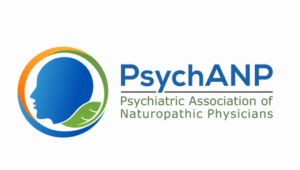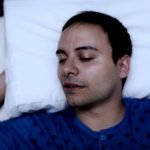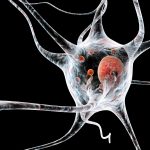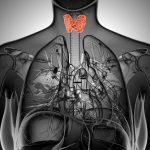Association Spotlight: PsychANP
Naturopathic News
CARLO CALABRESE, ND, MPH
 Human health cannot be understood or optimized without considering the foundational roles that brain and mind play in our embodiment. Health, from the individual to our planetary context, depends on biological, psychological, social, and spiritual parameters – together, the definition of ‘holistic.” Its complexity leads to great challenges in arraying and improving the body of knowledge and practice related to mental health and behavior, which are key tools and targets of health improvement.
Human health cannot be understood or optimized without considering the foundational roles that brain and mind play in our embodiment. Health, from the individual to our planetary context, depends on biological, psychological, social, and spiritual parameters – together, the definition of ‘holistic.” Its complexity leads to great challenges in arraying and improving the body of knowledge and practice related to mental health and behavior, which are key tools and targets of health improvement.
Bridging the gaps in our understanding and practice as we better define and train for the field of psychological health from a naturopathic perspective was the vision of a group of naturopathic doctors when they founded the Psychiatric Association of Naturopathic Physicians (PsychANP). The association was incorporated in Seattle, WA, in 2016, with founding members from across the United States and Canada, and was developed as a formal affiliate of the American Association of Naturopathic Physicians (AANP).
PsychANP’s mission is to: lead in the development of naturopathic psychiatry education and practice including residencies; define the principles of care and integrate the clinical practice and research that comprise the field; advocate for appropriate scope of practice in naturopathic psychiatry; and provide a definitive resource of information in the field.
Rationale for PsychANP
There are several reasons for the development of the PsychANP at this point in history. The first is that the high burden of mental illness is currently inadequately addressed. One-third of global adult disability is accounted for by mental illness, and perhaps half of the serious cases in the United States are untreated (WHO).1 There is a higher prevalence of mental health diagnoses in naturopathic medicine than in conventional medicine,2 which suggests the need for substantial expertise in psychiatry among naturopathic physicians. The psychiatry workforce is declining3 while the need for fully licensed mental health practitioners is growing,4 especially in rural areas and among children, returned veterans, victims of the well-documented opiate drug epidemic, and other underserved groups. Naturopathic doctors can contribute to these workforce needs, especially if better prepared for challenges in the domain. To complicate the situation, psychiatry itself has been changing, with an increasing emphasis on psychotropic drugs, a decline in talk therapy, and shrinking length of visits. This is partly the result of the explosion of information in neuroscience; but more significantly, market forces drive it, including health insurance constraints.
Even if the chief complaint is not psychological, mood and behavior have profound effects on physical health. Recently, an article in the Annals of Family Medicine estimated, via several methods and data–sets, that 0% to 17% of premature mortality was attributable to deficiencies in health care access or use, while estimates of the effect of personal behavior ranged from 16% to 65%.5 From naturopathic clinical experience, we can certainly add that good diets, exercise, and stress management also improve functionality, and that patient motivation, self-awareness, and adherence are usually essential to successful treatment. Better mental health care skills in primary care practices improve overall health outcomes.
Given the relatively small number of naturopathic physicians in the North American healthcare workforce, perhaps the greatest contribution that the profession makes to the wider healthcare system is to inform it. In social medicine, naturopathic practice is an important laboratory (a demonstration project) in which to inform the healthcare system. We believe this is nowhere more important than in areas shaping mental health care. In recent decades, naturopathic doctors helped encourage conventional medicine towards holism, mind-body techniques and approaches, energy medicines, lifestyle as medicine, individualized medicine, patient engagement and empowerment, integration of traditional and cultural medicines, environmental awareness and toxicology, and even green allopathy, with its benefits of reduced dysfunctional side–effects, addiction, and overdose due to the overuse of psychotropic drugs. The economic benefit of naturopathic medicine’s capacity to affect numerous diseases simultaneously by supporting overall health has barely begun to be revealed. In mental health, among thousands of clinical studies suggesting or demonstrating benefit of natural agents and process, there is a small but positive literature where the treatment in studies is guided by naturopathic doctors.6-8
Needs, Projects & Challenges
PsychANP’s stated vision is to realize universal availability of effective, efficient, and compassionate care to prevent and treat psychological distress, with consequent improvement of personal and social function. To facilitate their fullest engagement in this vision, naturopathic doctors ideally need the following:
- A defined but evolving standard of excellence through board certification for naturopathic doctors in psychiatry
- Focused training and residencies in psychiatry for naturopathic physicians. CNME, the naturopathic accrediting agency, presently only accredits general medicine residencies; however, PsychANP may address additional standards in settings with high psychiatric populations and to increase mental health competencies in general residencies.
- Appropriate scope of practice, eg, prescribing rights for naturopathic physicians in mental health care
- Health insurance reimbursement at community rates, to sustain physician participation
PsychANP considers each of these to be within its mission, but is prioritizing as its resources grow. Consequently, PsychANP’s principal project this year is to develop an initial standard for certification of training and expertise, under the Certification Committee that is chaired by PsychANP President, Kabran Chapek. The certification standard to be set will evolve long–term as new opportunities in psychiatric training emerge. Challenges in the process run from titling of the certification to how to scale emphasis on the numerous therapeutic options available to naturopathic physicians and assuring their fit with our principles of care. Dr Chapek looks forward to the first–certification completers, in that patients will be able to reliably find well–trained naturopathic mental health care providers.
Educational Outreach & Member Benefits
Education for naturopathic psychiatry has been pursued so far by several channels. A well-attended 2nd Annual Conference in 2018 – held in conjunction with the California Association of Naturopathic Physicians – was a prelude to the upcoming 2019 conference with a focus on autoimmunity and mental health. The conference will be held with the Arizona Naturopathic Medical Association, November 2-3, in Scottsdale. For more information about it, see the PsychANP website (https://www.psychanp.org), which also lists both public and members-only resources. A second channel for educational outreach is via live and archived webinars (currently 10 in the archive) by experts in integrative, functional, and naturopathic psychiatry; these are available for CME at https://www.psychanp.org/ce-events.html.
A developing research archive is available to members. We are aiming at formalizing literature review for it and compiling a meaningfully comprehensive database of evidence in naturopathic psychiatry. A study group in homeopathy in psychiatry, led by Tara Peyman, ND, is a member benefit that is held online once a month. Case consultations and mentorship are also available to PsychANP members. We have had some success with study groups that meet online with a mentor. The association has initiated a quarterly newsletter, and is active in social media via Facebook and Instagram newsfeeds regarding emerging evidence relevant to the field.
Continuing Growth
Bigger challenges before us include stimulation of residencies and appropriate supervision where they exist. We began by locating a handful of residencies in mental health that accept naturopathic physicians. PsychANP will be describing the sites for focus and the experience of past residents. Some budding opportunities for new residencies are also being encouraged, along with the development of some emerging mental health residencies. Information on how to properly train for naturopathic psychiatry is just emerging. Even in conventional medicine, the issue of effectively executing its own definition of “integrative” regarding biological and psychological causes and treatments is fraught with challenges regarding how to integrate biological and psychological approaches, when it is well known that both are generally better than one or the other. Naturopathic doctors have an even more complicated body of knowledge in terms of considering these 2 facets of mental health in a holistic frame – a high bar for practitioners of any kind.
The PsychANP membership has attracted almost 200 and continues to grow. Enthusiasm among students, in particular – an indicator of future interest and growth – is high. Georgi Stoychev, one of 5 student representatives within the naturopathic programs and one of the administrators of the growing research archive, says, “My prime hope would be for us to have mental health-focused residency opportunities, as well as more mentorship and preceptorship options available.”
Most operations are performed by volunteers, and as members grow, they are bringing much–needed new skills to staff the projects of committees on Professional Affairs, Public Affairs, Certification, and Membership. To join PsychANP, go to https://www.psychanp.org/join-us.html. Membership criteria and categories include graduation from an accredited naturopathic medical school, current enrollment in an accredited naturopathic school, healthcare practitioners interested in advancing the field of naturopathic psychiatry, and businesses interested in advancing the field. The Psychiatric Association of Naturopathic Physicians will be strengthened by your membership and participation according to where your interests lie. Your affiliation will improve care and perhaps help open new healing approaches to the most disabling of human conditions.
References:
- Demyttenaere K, Bruffaerts R, Posada-Villa J, et al. Prevalence, severity, and unmet need for treatment of mental disorders in the World Health Organization World Mental Health Surveys. JAMA. 2004;291(21):2581-2590.
- Chamberlin SR, Oberg E, Hanes DA, Calabrese C. Naturopathic practice at North American academic institutions: description of 300,483 visits and comparison to conventional primary care. Integr Med Insights. 2014;9:7-15.
- Bishop TF, Seirup JK, Pincus HA, Ross JS. Population of US Practicing Psychiatrists Declined, 2003-13, Which May Help Explain Poor Access to Mental Health Care. Health Aff (Millwood). 2016;35(7):1271-1277.
- Health Resources and Services Administration (HRSA); National Center for Health Workforce Analysis. National Projections of Supply and Demand for Selected Behavioral Health Practitioners: 2013-2025. November 2016. Available at: https://bhw.hrsa.gov/sites/default/files/bhw/health-workforce-analysis/research/projections/behavioral-health2013-2025.pdf. Accessed June 18, 2019.
- Kaplan RM, Milstein A. Contributions of Health Care to Longevity: A Review of 4 Estimation Methods. Ann Fam Med. 2019;17(3):267-272.
- Breed C, Bereznay C. Treatment of Depression and Anxiety by Naturopathic Physicians: An Observational Study of Naturopathic Medicine within an Integrated Multidisciplinary Community Health Center. J Altern Complement Med. 2017;23(5):348–354.
- Cooley K, Szczurko O, Perri D, et al. Naturopathic care for anxiety: a randomized controlled trial ISRCTN78958974. PLoS One. 2009;4(8):e6628.
- Usher C, Thompson A, Griebeler M, et al. Meals, Mindfulness, & Moving Forward: A feasibility study to a multi-modal lifestyle approach in early psychosis. Early Interv Psychiatry. 2019;13(1):147-150.









